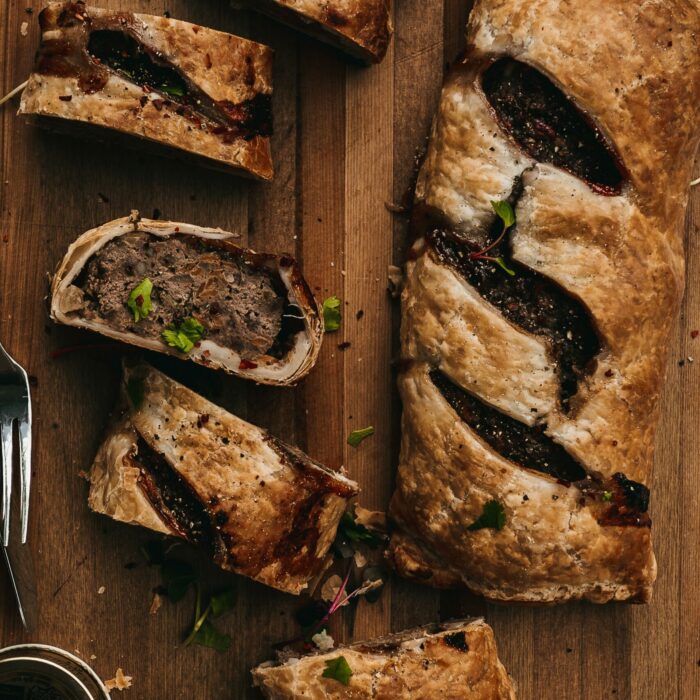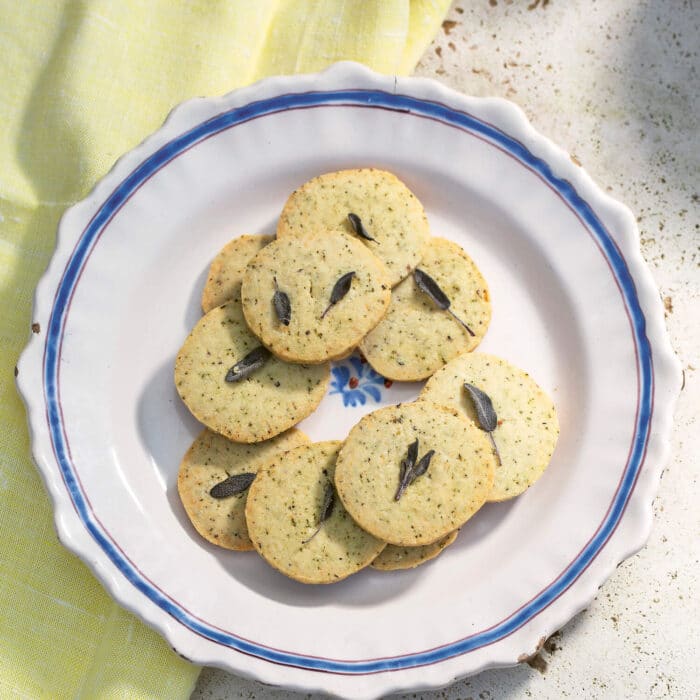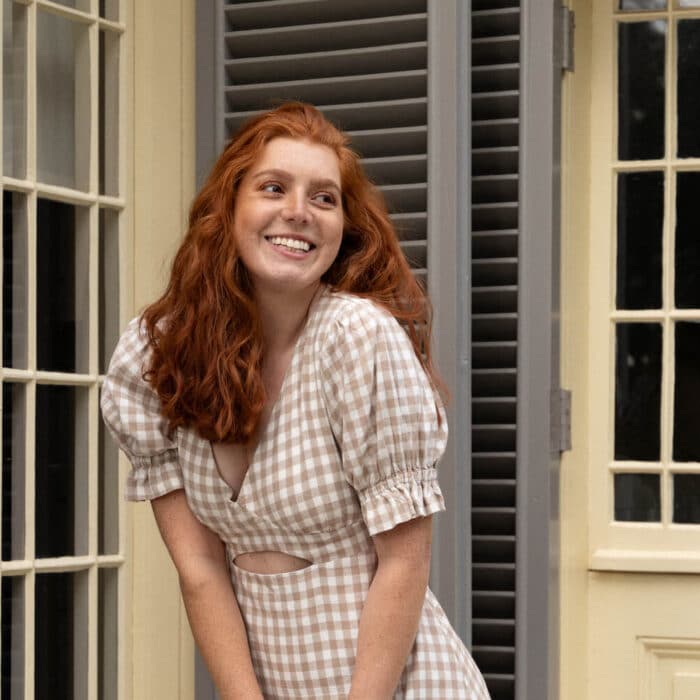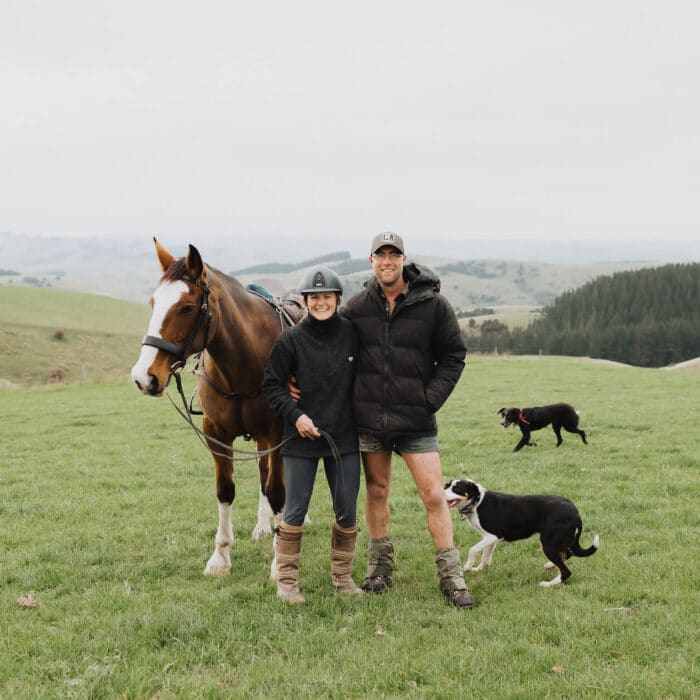09 December 2022
Returning age 63 to run the family farm and “fixing this place up so my mum would have smiled”
writer: Lauren Jackson
photographer: Tess Charles
Sue McCauley, 80, lives with her husband, Pat Hammond, 65, on the farm where she grew up, nestled in the Waitahora Valley east of Dannevirke. Now the valley’s oldest resident, she left for boarding school at twelve and returned aged sixty-three to work the family farm. Sue has worked as a journalist, scriptwriter and award-winning novelist all over Aotearoa New Zealand, raising her family along the way. Her lifelong yearning to return to the land is evident in her writing, with rural themes woven throughout.
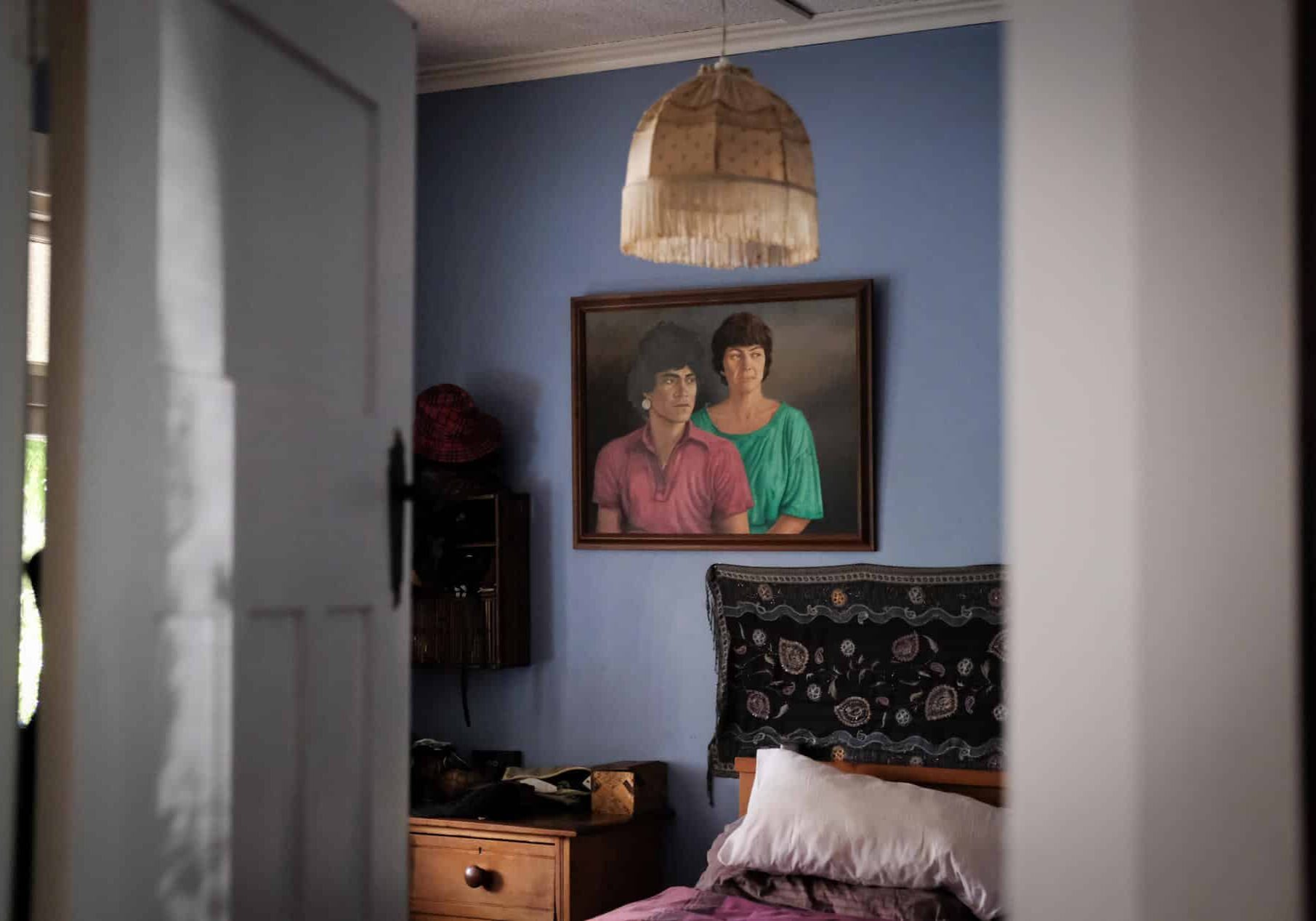
Sue is excited. After almost two decades, she is turning her attention back to writing. Her first novel in twenty years, Landed, is set to be published early next year. Sue’s writing output slowed on her return to Waitahora, busy as she was shaping a different kind of story – a very personal one. She and Pat have been reengineering the fate of Sue’s family property, turning it into the beautiful home she wishes her mother could have enjoyed.
Sue’s mother, Violet ‘Monty’ McGibbon, died giving birth to Sue, leaving behind her newborn baby, three-year-old daughter Elisabeth, and husband James ‘Jimmy’ McGibbon. Recently, Sue was walking her dog in Dannevirke when she stumbled upon the concrete foundations of a demolished building. “I found it quite spooky,” Sue recalls. On enquiry she discovered it had been the maternity home. “Where my mum died. Yet I hadn’t known.”
After the death of their mother, Sue and Elisabeth spent five years in the care of their loving aunt, who lived down the road, before moving to live with their dad on the four hundred acre sheep and beef farm. “He was a lovely bloke,” says Sue of her dad. When she was eight, Jimmy remarried. Sue recalls her stepmother was openly resentful of being saddled with children and was, Sue felt, unnecessarily harsh with both the girls. The house became her stepmother’s territory, and so Sue took refuge outdoors – roaming the paddocks on her pony, playing in the woolshed, and swimming in the river that wends its way through the land.
When they each reached high-school age, Sue and her sister were sent to board at Nelson Girls’ College, where she obtained her University Entrance at sixteen. However, she wasn’t a star pupil. “No one really considered me university material. I was always told I had an attitude problem – too many opinions for a child
After a year nurse-aiding in Dannevirke, Sue was desperate to escape her stepmother and the rugby-and-debutante culture of Waitahora Valley. She would have liked to pursue a career in journalism. “I was an absolute wash-out in lots of things, but I was always told I could write.” But no one was employing women journalists in the late fifties, so Sue took a job as a radio copywriter at 3ZB in Napier. “It was great fun. We didn’t have enough work to occupy ourselves, and I got paid extra money for having my UE. I’d always felt like the ugly duckling, then I got to radio, and I thought, ‘Oh, this is where I belong’.” Belonging – it was a new and wonderful feeling for eighteen-year-old Sue.
A stint as a copywriter at 2ZB in Wellington followed, and Sue wrote stories in her spare time. When a colleague gave one of them to the New Zealand Listener editor of the time, Montague ‘Monte’ Holcroft, he offered Sue a job. And so, at the age of nineteen, Sue became a journalist. “I was so proud of myself,” she smiles. She recalls pushing the conservative editor into letting her interview the Howard Morrison Quartet. When young Howard stopped her in the street months later to thank her for the story, Sue was chuffed. He even remembered her name!
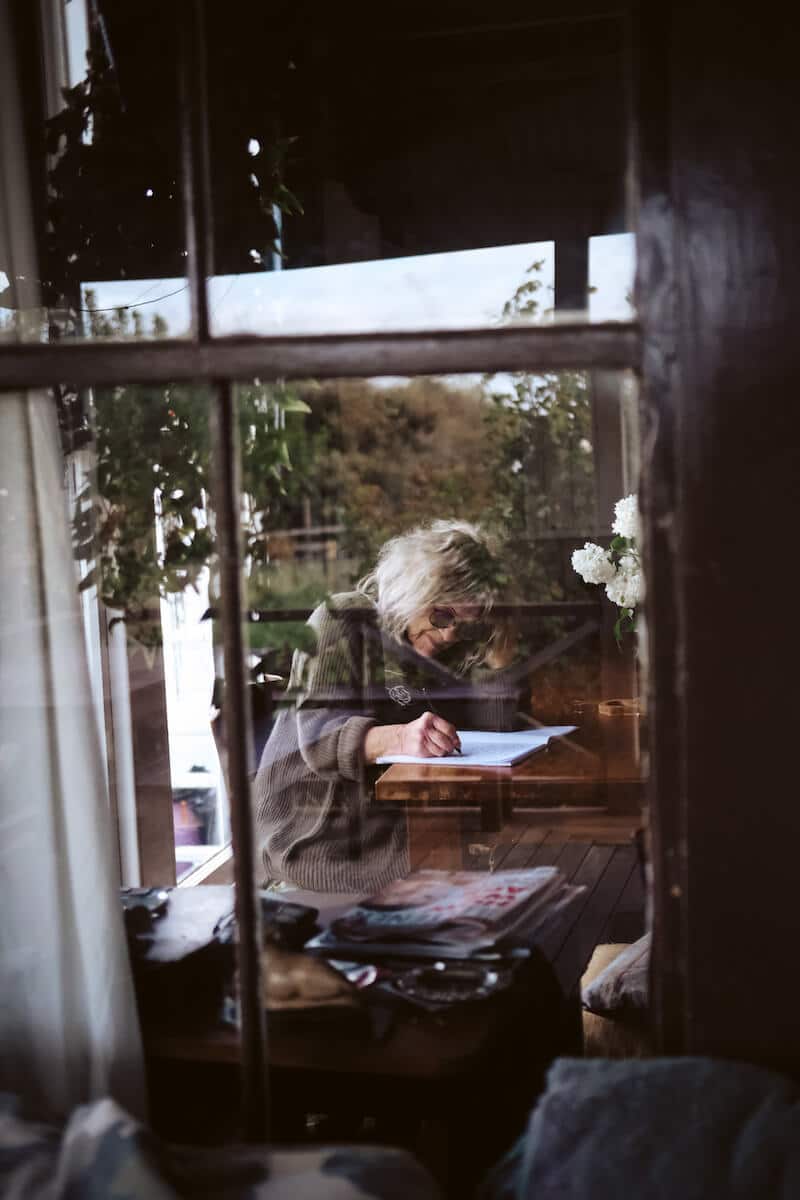
Sue left her beloved Listener job when she followed her future husband to Australia. “It was a really stupid thing to do, but in those days ...” Sue never gave up writing, however, and has poured her own and others’ experiences into her short stories, radio and stage plays, novels and screenplays over the years. Her 1992 film Married, directed by Gaylene Preston, quietly observes the erosion of a young woman’s sense of identity as she navigates married life and motherhood.
Sue and her husband eventually returned to New Zealand. In New Plymouth, Sue gave birth to a stillborn baby boy. “I’ve written about that baby in my latest novel,” says Sue, “but not about the birth, which was dreadful. The hospital staff were brutal.” A year later Sue gave birth to her second son, followed by her daughter four years later. It stung when Sue was asked to leave jobs – first the Taranaki Herald and then The Christchurch Press – each time she became visibly pregnant. “You couldn’t go out and interview people if you had a large belly. It would be terribly embarrassing for people,” she says ironically. The second time it happened, she went to the union, who took the newspaper’s side. So she gave up on being employed and turned to freelance work. “And then my husband took off and didn’t bother with maintenance payments,” Sue explains. “So, I had to be earning.”
As a journalist, Sue had come up against censorship for political or puritanical reasons. When, in the early seventies, she began writing for Thursday: the magazine for younger women, the editor, Marcia Russell, promised Sue that whatever she wrote would be published. Yet an early piece she wrote about public aggression towards lesbians was delayed for several issues in order to spare Sue from the violence and hostility that Marcia, as editor, was initially subjected to. While Sue thinks things have improved for women, she read through some of her old columns recently and realised, “Most of the things I was banging on about – they haven’t changed.”
Fed up with the constant censorship in journalism, Sue set her sights on writing a novel. “I thought, ‘Fiction is the only place where I can tell what I think is the truth.’” She penned her first novel, Other Halves, securing a grant part-way through. In her early thirties, Sue had met and fallen in love with her now husband, Pat. The fact that Pat was Māori (Ngāi Tahu, Ngāti Raukawa) and a teenager ruffled feathers, and their relationship provided the inspiration for Other Halves, although it is very much a work of fiction. The novel, published in 1982, shines a light on the racism and sexism that abounded in New Zealand at that time. Its characters live on the outskirts of society and struggle to access social welfare.
Other Halves voiced women’s experiences in a specific and intimate way, garnering awards, sparking some outrage – “I just thought that was ignorance,” says Sue – and a huge reader response. Sue received a deluge of mail; some of it from women who had read the book and decided to leave their husbands. “I can remember writing to people and saying, ‘Don’t make hasty decisions. My book is not your life, necessarily.’”
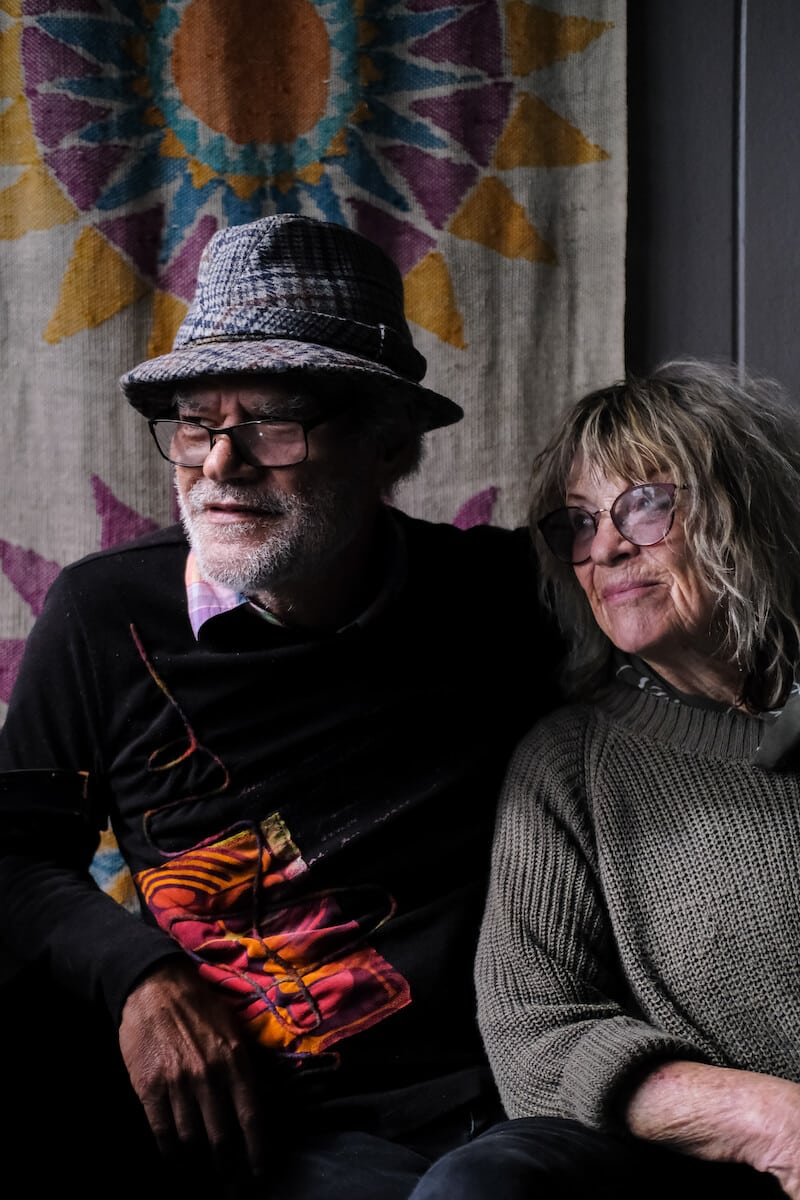
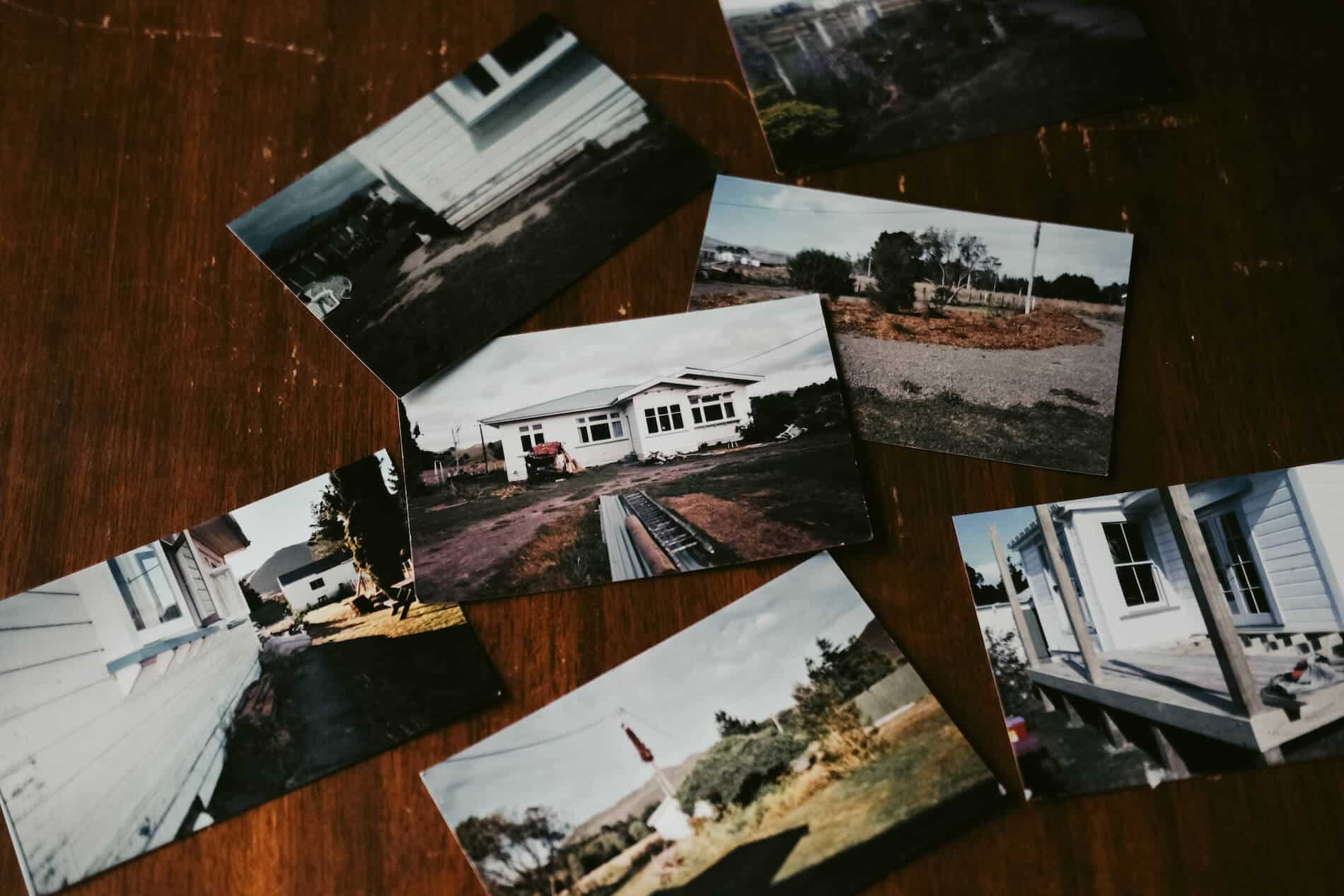
When Sue was approached about adapting Other Halves for the big screen, she insisted on writing the screenplay. She was surprised when some scenes were omitted from the final cut, which ultimately didn’t quite marry with her vision for it, and she and Pat were disappointed by the film's focus on violence. They thought the actors were excellent, however, and the film enjoyed critical and box office success. Sue loved collaborating with filmmakers Gaylene Preston and Pat Robins on films such as Married, Matrons of Honour and Food for Thought. Together they explored the resilience and humour employed by women in their efforts to get by in a man’s world.
Sue was approaching her sixties when the opportunity to return to her childhood farm arose. Her father, Jimmy, had left the farm to Sue and Elisabeth but willed its income to their stepmother. When she passed away in the early 2000s, Sue and Elisabeth were faced with a decision – what to do with the farm? It was in a dismal state after years of being leased out, and the long-neglected house triggered bitter memories for Sue of her stepmother. However, Elisabeth still had some precious memories of their mother, Monty, in the house. Selling up was never on the cards. Ready for a new challenge, Sue and Pat returned to Waitahora Valley in 2004 and got to work on the place. They lovingly renovated the house, and noticed something special about the garden: the few plants that remained had been planted all those years ago by Monty – japonica, a rhododendron tree, and grape hyacinths still blossomed. Some of Monty’s garden had endured the years of neglect.
The farm is one of three originally owned by Sue’s grandparents, so she still has cousins in the valley. After they’d been back a couple of years, a cousin popped by to inspect the new verandah. “He said, ‘Uncle Jimmy’s up there and he’s smiling so hard,’” recalls Sue. “And I thought, ‘Yeah, that’s what I want.’” Sue and Pat were by then farming a portion of the property, with the rest leased by a trustworthy neighbour. Farm work, at an age when most people are retiring, restored Sue’s physical strength after years of working at a desk. It’s been her creative outlet, but most of all it’s been an expression of love for the mum she never knew. “I kept thinking, ‘I’m doing this because this is how my mum would have made this place, had she lived’,” says Sue.
Sue and Pat live in the main house, while Elisabeth has added a cottage she and her family stay in when they visit. As Sue enters her ninth decade, the farm is now entirely leased, but the house paddock still boasts some furry friends – three alpacas, Rangi, Tei and Shadow; a very fat sheep, Taylor; and Lulu, the miniature pony. “They’re all mates,” laughs Sue. “They all love each other.”
Sue has always done her own thing, and her approach to her latest novel is no exception. She has experimented with structure, and tackled political themes. After submitting an earlier version to her previous publishers several years ago, she found they “didn’t get what I was trying to do.” Feeling thoroughly rejected, Sue wondered if her writing career was over. However, her trademark tenacity paid off when a couple of years ago she dusted off her manuscript and submitted it for the Michael Gifkins Prize for an Unpublished Novel and was named a finalist. It was subsequently picked up by Bateman Books, and after some final reworking, Landed will be published in March 2023.
Landed flips the convention of adult children writing about their parents, by writing about children and grandchildren from the perspective of an older parent. It’s about coming to terms with change, and the desire to live in the country. Sue hopes readers will empathise and connect with the story the way they have with her past work. Fans of her writing style won’t be disappointed. “No matter what I attempt to write, it does seem to always end up sounding just like me.”
Sue is grateful for a long and prolific career and the positive reception her writing has received over the years. “But fixing this place up so my mum would have smiled – that’s a more worthwhile achievement. Because it’s more tangible. Because it’s for family, and it might last forever, or nearly.”

This story is part of THREAD, a year-long project by Shepherdess made possible thanks to the Public Interest Journalism Fund through NZ On Air.
If you enjoyed this story, please share with someone else.
Get your hands on a copy of Shepherdess.
Related Stories
Coriander + Beef “Sausage Rolls” with Spiced Plum Sauce
This recipe is great for a weekend lunch or as dinner with a salad.
Savoury Herb Shortbread
These are ridiculously moreish. They make a nice change from a sweet biscuit in the afternoon, and are great at aperitivo time!
Frolic Frocks
As the weather shifts and the sun warms cool skin, our clothes reflect the optimism in the air – light, colourful garments in cotton and linen that raise the spirits.
The Richness of Lawrence
A day spent exploring Lawrence like a local, with a local, enjoying everything from historic landmarks and eclectic shops to serene retreats that will entice you to stay a while.
